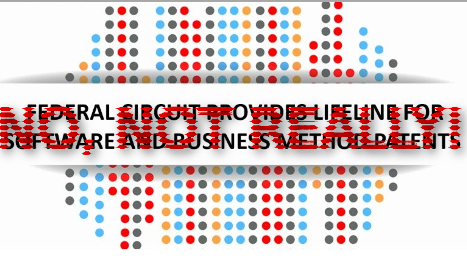

"The patent extremists, we might as well add, are nowadays naming and ranking patent examiners by how subservient they are to patent maximalists."Sites like Watchtoll are keeping the old obsession with him, pushing him towards limiting/removing PTAB, reintroducing software patents etc.
Steve Brachmann (Watchtroll) wrote about him again a couple of days ago, to be followed by another piece about the person who chose him before Trump nominated him. To quote:
Over the last several weeks those in the industry supportive of strong patent rights have been treated to speeches from USPTO Director Andrei Iancu saying all the right things about the patent system. but it is hard to imagine anything more significant than Secretary Ross simply showing up at an event like this.
"So basically, nothing has been finalised."Even IBM's patent chief is boosting Watchtroll on this, which says a lot about IBM. It's a rather trollish and malicious company nowadays. It lobbies for software patents like no other company (not even Microsoft).
The patent extremists, we might as well add, are nowadays naming and ranking patent examiners by how subservient they are to patent maximalists. This is a sort of witch-hunt-type trick. Anticipat did it and now Watchtroll joins the 'fun'. It's getting pretty ugly.
For a more balanced coverage, see what IP Watch wrote yesterday:
The United States Patent and Trademark Office today issued a Federal Register notice providing guidance to patent examiners on patent subject matter. The office is seeking public comments on the new guidance.
As for the memo itself, it indicates that while Berkheimer does not change the basic subject matter eligibility framework set forth in MPEP €§ 2106, the case does provide clarification for the Alice Step 2B inquiry in that whether something is well-understood, routine, and conventional to a skilled artisan at the time of the patent is a factual determination. “[A]n examiner should conclude that an element (or combination of elements) represents well-understood, routine, conventional activity only when the examiner can readily conclude that the element(s) is widely prevalent or in common use in the relevant industry…[and] such a conclusion must be based upon a factual determination…This memorandum further clarifies that the analysis as to whether an element (or combination of elements) is widely prevalent or in common use is the same as the analysis under 35 U.S.C. €§ 112(a) as to whether an element is so well-known that it need not be described in detail in the patent specification [emphasis original].”
"We expect technology companies (other than IBM) to oppose changes and in fact Josh Landau (CCIA), who represents many such companies, has already responded."There was also this tweet about it, which said: "Yesterday in the Senate, USPTO director Iancu committed to reporting back on possible changes to 101 guidelines within 90 days, so today's news is something of a surprise. But eligibility is an issue Iancu has focused on strongly since taking the reins."
We expect technology companies (other than IBM) to oppose changes and in fact Josh Landau (CCIA), who represents many such companies, has already responded. Two days ago he wrote a rebuttal to the claims made in the oversight hearing:
On Wednesday, April 18, new USPTO Director Andrei Iancu appeared for his first oversight hearing in front of the Senate Judiciary Committee. The Director was more open with the Committee compared to his confirmation process, leading to some interesting discussions.
Algorithms Are Already Patentable
A number of questions focused on the issue of patentable subject matter, also referred to as €§ 101. As noted by a number of Senators, artificial intelligence (AI), machine learning, and big data are huge areas of innovation right now. Google’s AI systems (including DeepMind and TensorFlow) have enabled key advances in many areas of machine learning. NVIDIA’s advanced GPU hardware enables faster, more efficient AI technology, and they have their own AI systems that run on top of their hardware. Intel is providing neural network hardware that can learn on its own. These technologies underlie recent advances in areas as diverse as natural language translation, self-driving cars, and medical diagnostics.
Unfortunately, there appeared to be an impression that algorithms aren’t patentable, and Director Iancu could have done more to clarify that that’s anything but the truth. Of course you can patent an algorithm. In fact, claiming a specific algorithm for solving a problem in your patent is one of the most effective ways to make sure that your invention passes €§ 101; that was the exact rationale in the McRO case. Essentially, you can patent “a specific means or method that improves the relevant technology,” but you can’t patent “a result or effect that itself is the abstract idea and merely invoke generic processes and machinery.” A specific algorithm that solves a technical problem is patentable. But what isn’t patentable is claiming “using artificial intelligence to solve a problem”, any more than “using computers to solve a problem” was found patentable in Alice.
And that shouldn’t concern anyone interested in the future of AI. Alice hasn’t hurt the computer software industry—on the contrary, R&D spending on software and the internet has skyrocketed post-Alice. And the inability to patent “solve it with AI” isn’t going to harm investment in AI.
Real advances in AI are receiving patents every day. [1][2][3][4]. Utility patent 10,000,000 will likely issue this summer, and given the pace of innovation seen every day, there’s a good chance that patent will relate to AI. But what isn’t—and shouldn’t be—patentable is the sort of “do it with AI” patents that can block off whole areas of research and development, the sorts of patents that are favorites of patent trolls. And that’s exactly the situation we have today.